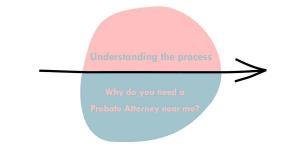Everyone owns an estate even if you find it hard to believe. An estate comprises of all that you own; that is, all your assets. Your asset could be your car, home, furniture, stocks, investments, personal possessions, etc. Irrespective of how extensive or little it is, we all own assets that we will definitely leave behind when we die. Upon your demise, you would want those assets you left behind to be distributed in the appropriate proportions to your family member and loved ones (beneficiaries).
To make sure that your wishes are adhered to, you will have to provide clear instructions regarding whom you want to receive a certain property of yours, how you want him/her to get it, when you want him/her to receive it, etc. You will definitely want this to occur with a little amount paid in taxes, legal fees, including costs.
Estate planning is simply making plans regarding the assets that would be left behind when you die. This plans covers the beneficiaries of your properties, including selecting an executor who will act on your behalf when you are no more. But, one thing you should note is that, good estate planning is more than simply drafting a plan concerning how your properties should be shared upon your demise.
A GOOD ESTATE PLAN SHOULD INCLUDE
- Certain instructions regarding the transfer of your values (religion, education, hard work, etc.) including your properties
- Instructions regarding how you should be cared for should you become incapacitated
- The name of a guardian including an inheritance manager for little children
- Provision for family members who require special needs without ruining government benefits
- Provision for relatives who are financially unstable or who require money for futuristic purposes such as in the case of a divorce
- Life insurance to provide for your loved ones when you eventually kick the bucket. It should also include a disability income insurance to replace your income if you become incapacitated, and a long-term care insurance to help foot the bill of your care in the situation of a protracted illness or injury.
- Provisions for the movement of your business when you retire, get incapacitated, or die.
- Reduces taxes, court costs, including all unnecessary legal charges
- A good estate plan must also be a progressive process and not a one-time affair. There must be room for updates which may be required as a result of some life changes.
Estate planning is for all
There is this misconception that estate planning is for retired individuals; this is completely wrong. Estate planning is for everyone, though older people often think of it more than the younger ones due to their age and tendency to die at any time.
Because we can’t correctly predict how long we will live, and since illness and accidents isn’t restricted to a certain age, it is paramount we all prepare an estate plan. Also, estate planning isn’t just for the rich because of their abundant wealth. But in the world of today, the rich often think about how to preserve their fortunes when they eventually die and this results in them creating an estate plan.
If you fail to create an estate plan, your state will create one for you and you may not like it
When incapacitated: If you have your name on the title of your assets and due to your disability, you can’t conduct business, an individual appointed by the court will be the only one who can sign for you. The court and not your family will state how your assets will be used for your care via a conservatorship or guardianship (this depends on the term utilized in your state). This can end up becoming costly and time consuming.
The conservatorship is open to the public, thus, stopping it may be difficult when you recover.
Upon death: If you don’t prepare an estate plan before you die, your assets will be shared based on the probate laws of your state. In most states, if you are married with children, your spouse and children will get a share of your assets. That denotes that your spouse and children would only get a certain proportion of your estate which may not be adequate. If you have little children, their inheritance will be managed by the court.
PREPARING AN ESTATE PLAN
In preparing an estate plan, you have to prepare it in such a way that it adheres to the laws of the state you are in. Estate planning New Jersey would have to adhere to the state laws of New Jersey, the same goes for other states. A competent and expert estate planning attorney can help draft your estate plan in a way that it doesn’t flout any state law.









